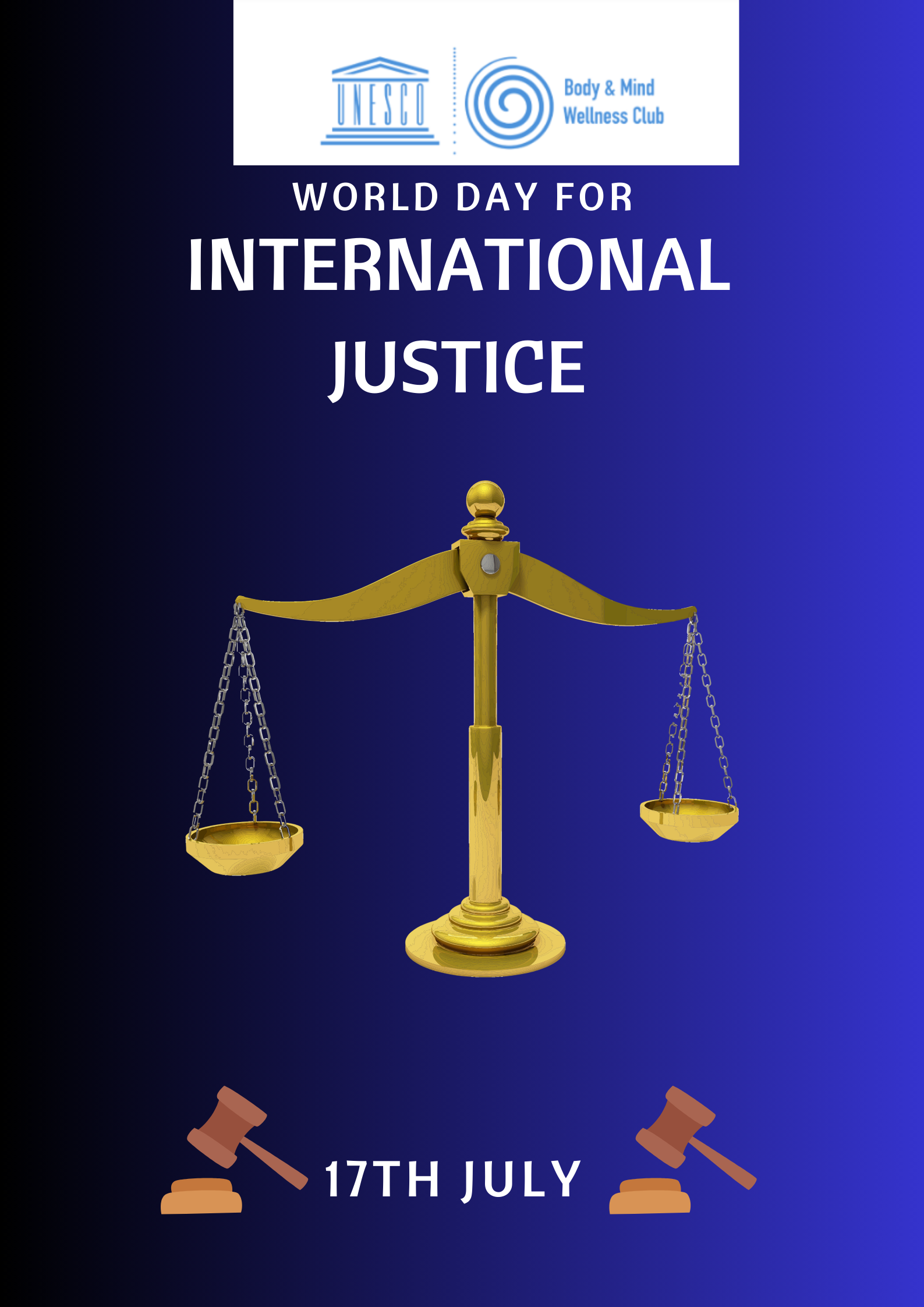
The Origin
Every year on July 17th, people commemorate International Justice Day, also known as World Day for International Justice. This day’s history begins on July 17, 1998, when the Rome Statute, which created the International Criminal Court (ICC), was ratified. The International Criminal Court (ICC) is the first permanent international court that has the authority to bring cases against people for the most heinous crimes against humanity, including crimes against humanity, war crimes, crimes against humanity, and aggression. The international community’s long-standing desire to create a system that holds those responsible for horrible atrocities accountable and advances justice and peace on a global scale served as the impetus for the establishment of the ICC. The Rome Statute was a major development in international law that put a stop to the practice of allowing people guilty of the worst crimes to go free. It represented the result of years of work by several governments, non-governmental groups, and international organizations committed to the idea of universal justice.
The inaugural celebration of World Day for International Justice took place in 2003, subsequent to the ICC’s formal foundation in 2002, which was made possible by the Rome Statute’s acquisition of the requisite 60 ratifications. This day honors the Rome Statute and draws attention to continuous initiatives to uphold the rule of law and fortify the international judicial system. Worldwide activities are held every year to increase public awareness of international justice, the ICC’s work, and the significance of holding perpetrators of international crimes accountable. These gatherings frequently feature lectures, instructional courses, and open dialogues with the goal of promoting an international culture of accountability and justice.
Importance and Impact
World Day for International Justice, celebrated on July 17th, plays a crucial role in promoting global awareness and support for international justice mechanisms. This day commemorates the adoption of the Rome Statute, which established the International Criminal Court (ICC), emphasizing the importance of holding individuals accountable for serious crimes such as genocide, war crimes, and crimes against humanity. By highlighting the work of the ICC, World Day for International Justice fosters a culture of accountability and deters future offenses by making it clear that impunity for such crimes will not be tolerated. The observance of this day strengthens the rule of law on a global scale by encouraging nations to support and cooperate with the ICC, contributing to a more consistent and reliable international legal framework. This global cooperation is essential for tackling transnational crimes and ensuring that justice is served across borders. Additionally, World Day for International Justice serves as an educational tool, raising public awareness about international justice through seminars, public discussions, and educational programs. These activities inform the public and foster a deeper understanding of the importance of international justice. The day highlights the plight of victims of international crimes, advocating for their rights and support. It underscores the need for reparations, psychological assistance, and other forms of help to aid victims in rebuilding their lives, ensuring their voices are heard and their needs addressed. By promoting the principles enshrined in the Rome Statute, World Day for International Justice encourages countries to ratify and implement the statute, broadening the reach and effectiveness of the ICC. In summary, the observance of World Day for International Justice is vital for advancing international justice, supporting the rule of law, educating the public, advocating for victims’ rights, and promoting global cooperation.
UNESCO BMW’S Involvement:
UNESCO collaborates with the Body and Mind Wellness Club (BMWC) on World Day for International Justice, emphasizing the global commitment to justice and accountability. This partnership aims to promote human rights and legal standards worldwide. By leveraging their respective strengths, UNESCO’s educational and cultural initiatives, and BMWC’s focus on holistic wellness, they work together to raise awareness and foster a global dialogue on the importance of justice. The collaboration involves organizing events, educational programs, and campaigns that highlight the significance of international justice in maintaining peace and security. World Day for International Justice, observed annually on July 17, marks the anniversary of the adoption of the Rome Statute, the treaty that established the International Criminal Court (ICC). This day serves as a reminder of the need for ongoing efforts to combat impunity for perpetrators of serious crimes and to support victims’ rights. Through their joint initiatives, UNESCO and the Body and Mind Wellness Club aim to engage a diverse audience, including policymakers, educators, students, and the general public, to build a more just and equitable world.
UNESCO BMW’s Vision
Our vision mission encompasses three main goals that are also in line with this occasion today and engage people of all ages, especially the youth improvement of the inner ecosystem, enhancement of inner creativity through arts and crafts, and, lastly, encouragement of inner peace globally.
By: Labiba
(Labiba Tahia)
References
1. Coalition for the International Criminal Court. (n.d.). Our mission. https://www.coalitionfortheicc.org/
2. International Criminal Court. (n.d.). Home. https://www.icc-cpi.int
3. UNESCO Body & Mind Wellness Club. (n.d.). Our mission. https://unescobmw.org/about-us/our-mission/
4. United Nations. (n.d.). International Justice Day. https://www.un.org/en/observances/international-justice-day